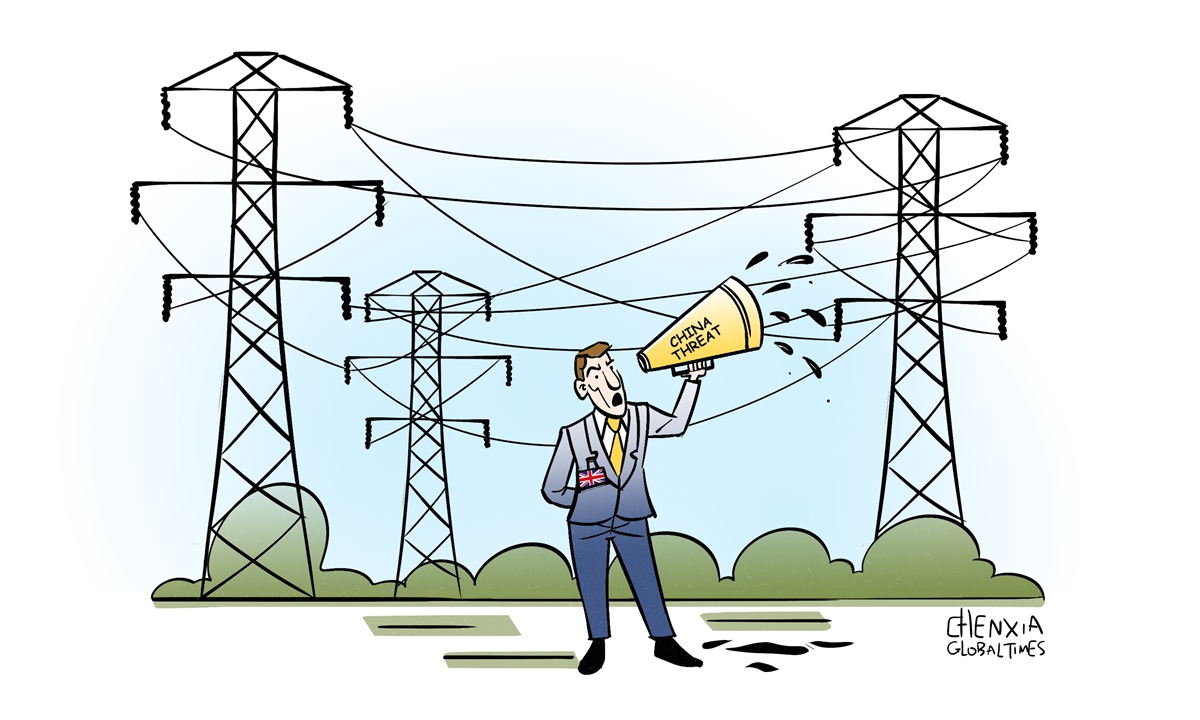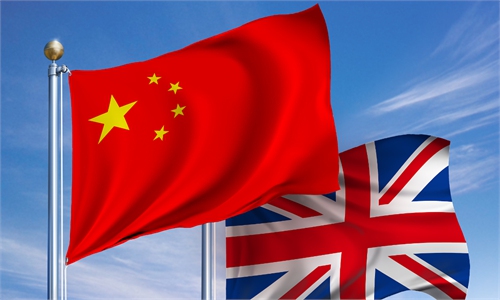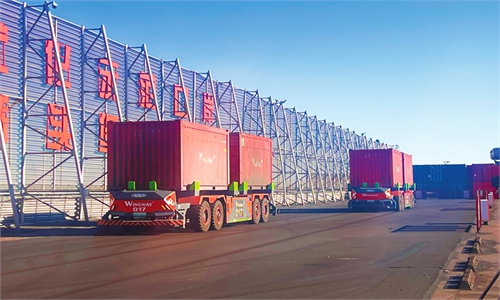
Illustration: Chen Xia/Global Times
Britain's National Grid has started removing components supplied by a unit of China-based Nari Technology from its electricity transmission network over "cybersecurity fears," the Financial Times said on Sunday. If the report is true, it is likely that Britain's energy transition will face significant obstacles due to the prevailing inertia of geopolitical thinking.The FT's report came at a time when the UK has set out plans to speed up connections and increase grid capacity to accelerate its clean energy transition. In the past, the UK's electricity grid mainly provided connection points for fewer, larger power plants.
However, today, a far larger number of small, renewable energy projects are springing up across the country, and each requires a new connection point. Consequently, grid reinforcements are necessary. As reported by the Guardian in May, some projects could be forced to wait for more than a decade to connect to the UK's electricity grid.
National Grid has reportedly increased its investment plans to 42 billion pounds ($53.3 billion) by 2026 as the backlog of clean energy projects waiting to connect to its grid continues to grow. It may not be much of a surprise if some political elites try to politicize economic issues and isolate Chinese companies as much as possible from the rapidly growing market, because their intention to "de-risk" from China hasn't died. It's an old trick of hyping so-called security threats to suppress Chinese companies. It will be regrettable if those political elites' selfish games hinder the UK's transition to green energy.
Plans to ensure that Britain's homes and businesses are powered by affordable, clean and secure electricity have been unveiled, which analysts said would allow the UK to run its grid entirely on clean electricity by 2035. Of the electricity generated in the UK in 2022, 40.8 percent came from fossil fuels, and 56.2 percent from low-carbon sources, including 41.5 percent from renewables and 14.7 percent from nuclear.
This means the UK still has a long way to go. If it wants to achieve its goals in the energy transition and ease its green energy gridlock, it should focus on collaborating with all companies that have price and technological advantages, rather than geopolitical games and the de-risking rhetoric of pro-US politicians.
Recent years have witnessed the rapid development of China's smart grid sector, as smooth grid transmission is essential for the large-scale utilization of renewable energy. China has become an important global market for power transmission and distribution systems. Its development has created rare opportunities for China-based electrical equipment enterprises. Some of them have significantly improved their research and development capabilities for high-end products and key equipment, thus forming a competitive advantage.
China's achievements in smart grids and renewable electricity generation innovations have been widely recognized, with many countries proposing bilateral or multilateral cooperation with China, and the products of Chinese enterprises are exported to nearly every corner of the world. "Decoupling" from China is neither realistic nor feasible.
China and the UK are two of the global leaders in the clean energy transition, so further cooperation is essential. Although the European Commission started an anti-subsidy investigation into Chinese electric vehicles (EVs), Britain's investment minister Dominic Johnson was quoted by media reports as saying in November that he was working to attract Chinese car manufacturers to build a factory in the country and that "investment from China was crucial for Britain to meet environmental targets." This indicates that the UK has a political atmosphere intended to promote mutually beneficial cooperation with China in the field of energy transition and the green economy.
Of course, some political elites addicted to geopolitical strife and zero-sum games may not know how to hold back. A strong inertia of geopolitical thinking will probably set obstacles for possible energy transition cooperation between the two countries. Hopefully, these politicians can abandon their zero-sum game mentality and create favorable conditions for further economic cooperation.
The author is a reporter with the Global Times. bizopinion@globaltimes.com.cn



